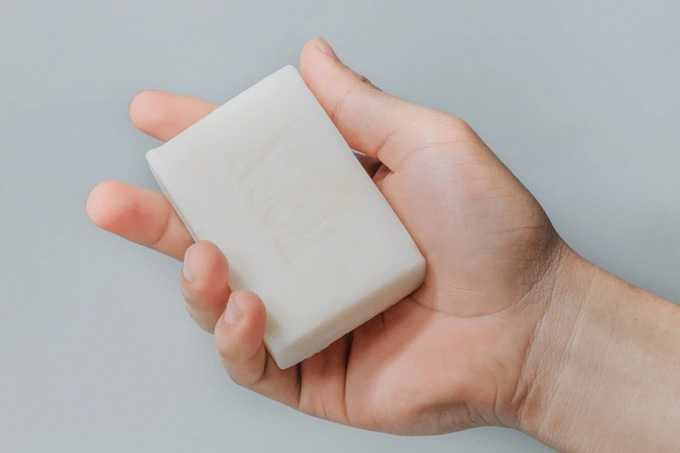Washing hands with soap but not killing bacteria, the simple reason is this
Soap is a familiar item when we wash our hands or when we want to clean our body.
Right from kindergarten, children have learned how to use soap to wash their hands to protect their bodies from disease-causing germs. But why does soap kill bacteria, make us cleaner, and in what cases is hand washing ineffective?

Soap when combined with water will destroy the structure of the virus.
According to Dr. Lee Riley, Chair of the Department of Infectious Diseases at the University of California (USA), the "superpower" of soap to kill bacteria is made up of its molecular structure. Accordingly, soap when combined with water will destroy the structure of the virus.
The structure of most viruses is composed of lipid, protein, and RNA molecules. In which, the weakest link is the fat molecules. When we use soap and water to wash our hands, it creates a "dual substance" (also known as an amphiphile). This substance has a structure similar to the lipid lipid of a virus, will invade and break the inherent structure of the virus, thereby causing the virus to be destroyed.
In 2010, researchers assessed the effectiveness of soap by sending 20 volunteers to soil their hands. Then, subjects were randomly assigned to perform 1 of 3 actions, including: washing hands with soap, washing hands only with water, and not washing hands at all.
The results showed that the group of subjects who did not wash their hands, bacteria existed in 44% of the participants. In those who only washed their hands with water, 23% of the study subjects still had bacteria on their hands. Meanwhile, for the group that washed their hands with soap and water, bacteria were detected in only 8% of people, according to the study.
According to GS. John Swartzberg, an infectious disease expert at the University of Berkeley, the molecules of ordinary soap are so effective at removing and killing germs on people's hands that the use of antibacterial hand sanitizers is a problem. solution is completely unnecessary.
However, one important requirement for soap to do its job is one that is often overlooked, and that is time. Specifically, GS. John Swartzberg emphasized that it takes at least 20 seconds for the soap molecule to bind and break the structure of pathogens on hands, as well as on other surfaces.
In a nutshell, washing your hands for less than 20 seconds is considered ineffective, which means you will miss out on the extremely effective protective effect of using soap.
- Experiments show that you are washing your hands extremely 'dirty'
- Prevention of nCoV: Is hand sanitizer better than washing hands with soap under running water?
- Wash your hands, act small to save many lives
- 5 scary bacteria on your hand
- Bactericidal soap is useless because we wash our hands too quickly
- Soap was born like?
- WHO put recommendations on what to do to prevent the spread of resistant bacteria
- Washing your hands with warm water does not kill bacteria
- 6 psychological effects when washing hands
- Reason not to use soap to wash dishes
- Washing machines do not need ... water and soap
- Why should I stop using antibacterial soap?
 Green tea cleans teeth better than mouthwash?
Green tea cleans teeth better than mouthwash? Death kiss: This is why you should not let anyone kiss your baby's lips
Death kiss: This is why you should not let anyone kiss your baby's lips What is salmonellosis?
What is salmonellosis? Caution should be exercised when using aloe vera through eating and drinking
Caution should be exercised when using aloe vera through eating and drinking